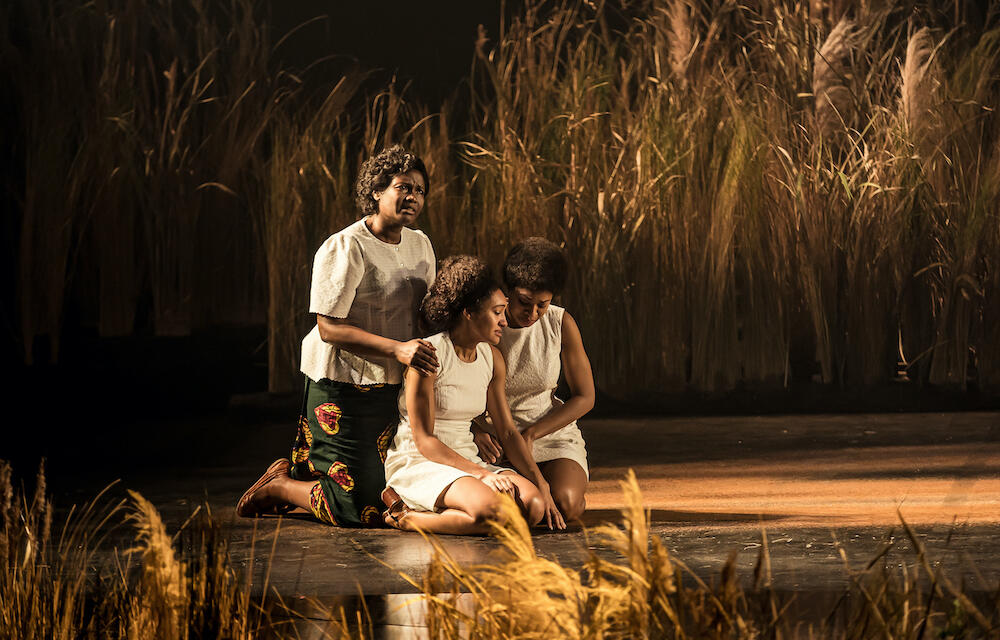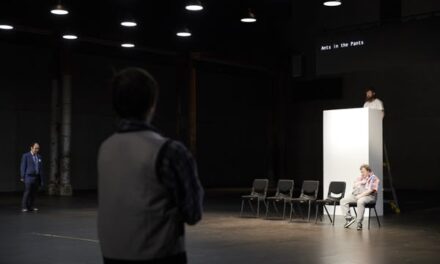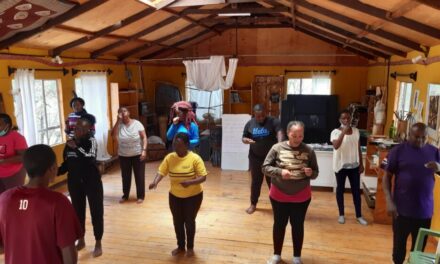Earlier in the week, I enjoyed a rainy afternoon at home by watching Inua Ellis’s 2019 adaptation of Anton Chekhov’s Three Sisters on the National Theatre At Home website. Transposed to Nigeria, during the Biafran war of 1967, it is set in provincial Owerri in Igboland, a long way away from cosmopolitan, and longed for, Lagos. As ever, Ellams writes with a freshness and energy that positively zings from the stage, while at the same time paying tribute to the original’s sadness and emotional depth. At the story’s center are Olga, Masha and Irina, now reimagined as Lolo, Nne Chukwu and Udo, whose birthday celebrations start the show. Sarah Niles’s Lolo understands the political tragedy of the family and community and her sense of loss has a strong and dignified presence; Natalie Simpson gives Nne Chukwu both passionate intensity and bleak despair; and Racheal Ofori finds hope as well as humor in her role as the youngest sister. The rest of the large cast is likewise enormously impressive: Jude Akuwudike, Ken Nwosu and Sule Rimi as the main men. In terms of symbolism, I really enjoyed the triumph of the ghastly Abosede (Ronkę Adékoluejo), wife of the sisters’ useless brother Dimgba (Tobi Bamtefa) — she is Yoruba not Igbo, and her power-grab in the house is like Nigeria’s victory over Biafra. Themes of racism, traditional medicine and masculinity are all sharply realized. Nadia Fall’s exquisite production is precise and epic, and beautifully designed by Katrina Lindsay. Although the show is long, and a lot of the exposition of the politics is quite complicated, there is some well-focused sharp criticism of British imperialism, and the political context gives a new meaning to the soldier characters, and more than a hint that a whole way of life is being destroyed in the suppression of Biafran independence. This is a hugely ambitious adaptation that breathes new life, and new meanings, into a European classic, proving that a global majority setting can improve on plays that we thought we already knew.
Three Sisters is on the National Theatre At Home website.
This article was originally published by Aleks Sierz on January 13th, 2023, and has been reposted with permission. To read the original article, click here.
This post was written by the author in their personal capacity.The opinions expressed in this article are the author’s own and do not reflect the view of The Theatre Times, their staff or collaborators.
This post was written by Aleks Sierz.
The views expressed here belong to the author and do not necessarily reflect our views and opinions.


















